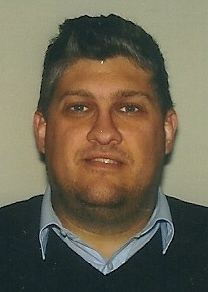SICOT e-Newsletter
Issue No. 40 - January 2012
Training Around the World
Orthopaedic Training in the United Kingdom Â
 Bassel El-Osta
Bassel El-Osta
Member of Young Surgeons Committee - London, United Kingdom
Â
  Â
Â
Â
Many surgeons in the world ask themselves why British surgeons are middle-aged and the younger ones are called registrars! Many surgeons around the world ask us what registrars are? Why do they have a consultant and what does this mean?
It is the right question to ask⦠as before I immigrated to the United Kingdom, I also thought, like many of you, that following five years of training after medical school I would become an orthopaedic surgeon... but I was totally wrong...
In the United Kingdom the training is different from the rest of the world. There was an old system which has been removed now and the training is currently working under a new system called MMC (modernising medical career). So, how is the doctor in the UK trained?
After medical school every student will get a job called Foundation year 1 and 2. This is an introduction to postgraduate medicine where the doctor will have to do 6 different disciplines mixed between surgical and medical as well as accident and emergency.
In the second step after FY 1 & 2, the doctor will have to choose what he/she likes the most: surgery or medicine. He or she will go through an application process, shortlisting, and then a tough interview to reach what is called Core Training (CT) and this will take another 2 to 3 years. By the end of these 2-3 years, the doctor should show competencies as well as passing the Membership exam (MRCS for surgeons). This is  followed by another application process, shortlisting, and tough interview in order to reach the specialty that the doctor would like to do. This is a bottleneck and tough process where only 1 in 10 candidates will get into the specialty and the rest will be called unfortunate.
Once the doctor gets through, he or she will become a Specialist Registrar (SpR) and, after 5-6 years, a specialist, receiving a certificate of completion of training. Meanwhile, the SpR has to pass the Fellowship exam.
The final step is to get a consultant job and this is a very tough and competitive endpoint.
This kind of training is not only tough but it is also a long road. I need to add that all this training is not held in one hospital and the doctor has to move every year to different hospitals and different departments.
Strengths and Weaknesses?
Obviously this training has its strengths as it will expose the doctor to different treatments done by different consultants or surgeons, different ways of operating and approaching the same surgery, exposure to various complex surgeries as well as particular aspects of the specialty. The doctor will need to learn very quickly to work in different environments and with different people, regardless of character, ethnicity or personality.
The weakness in the system is the instability caused to the doctor, where he or she has to move from one place to another, work with different people all the time; and sometimes work with people he or she might not get on well with. Another disadvantage is the length of training time, where it can take on average 10 to 15 years for a postgraduate doctor to become a specialist.
The British medical training system is well-known for having one of the best training and it is a destiny for many young surgeons, but before coming here, be prepared for a tough, and perhaps unsuccessful, road which could bitterly disappoint a junior doctor.
  Â